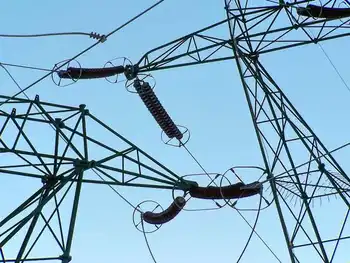California vote has Canadians holding breath
By Reuters
NFPA 70e Training - Arc Flash
Our customized live online or in‑person group training can be delivered to your staff at your location.

- Live Online
- 6 hours Instructor-led
- Group Training Available
British Columbia, Quebec, and Ontario plan to launch a carbon cap-and-trade market with California and New Mexico in 2012 — a market scheduled to be joined later by Manitoba and at least four additional U.S. states.
But Californians will vote in November on a ballot proposition to put the state's climate agenda on hold for years, and the Republican candidate in the gubernatorial race promises a pause as well.
California is the political force behind the Western Climate Initiative, a group of U.S. states and Canadian provinces that plan to set up a carbon trading market, and is by far the group's largest economy. So a step back by California would have both an economic and psychological impact.
"Losing California would be a major blow to the WCI and possibly to carbon trading systems elsewhere in North America... and quite possibly to the developing international carbon market," Ontario Environmental Commissioner Gord Miller's office warned in a recent report.
Few observers predict the Canadian provinces will scrap their cap-and-trade efforts if California pulls out, but there is concern the loss of such a major player could hinder the market's liquidity and efficiency, possibly leaving it subject to wide volatility in prices.
California greenhouse gas emissions traded on the WCI market would be larger than those of the three Canadian provinces combined.
"It certainly will be more challenging, but I think they will move forwardÂ…. It's always more challenging when there are fewer of you," said Mike Gerbis, chief executive of the Delphi Group, an Ottawa consulting firm that helps Canadian companies develop environmental strategies.
Cap-and-trade systems, which are already in place in Europe and the U.S. Northeast, place a cap on pollution, but let larger emitters help meet their targets by buying credits from other companies and projects that avoid greenhouse gas emissions.
The system's supporters say it sets a price for carbon, giving companies an added financial incentive to clean up and develop green technology. The global carbon market was worth an estimated $144 billion last year.
Proposition 23, on the November 2 election ballot in California, would suspend the law at the heart of state's climate change agenda until California's unemployment rate falls from the current level of more than 12 percent to 5.5 percent or less for four consecutive quarters. That's something it has only done for relatively short periods since 1976.
Republican gubernatorial candidate Meg Whitman wants to pause the 2006 climate change law, AB33, for at least a year to "freeze it and fix it" to protect jobs. But she has also said that she opposes Proposition 23.
A recent Reuters/Ipsos poll found 46 percent of likely voters oppose the ballot measure, compared with 35 percent who support it, but 19 percent said they had not decided how to vote or would not give their opinions.
Whitman trailed her Democratic opponent Jerry Brown 44 percent to 48 percent in the same poll. Brown would not delay the climate change law.
Canadian political officials are reluctant to weigh in publicly on California's domestic debate, or speculate on the vote's outcome, but they say are committed to the concept of cap and trade.
"British Columbia is confident that the hard work we've done in the WCI will move us forward," the province's Ministry of the Environment said in a statement.
Lindsay Davidson, spokesman for Ontario's Ministry of the Environment said the province is committed to a trading system, but added: "For a cap and trade system to work, Ontario needs partners to trade with."
Ontario's Environment Commissioner, an independent office that monitors the government's environmental compliance, cautioned a delay in starting the WCI could leave Canada's largest province unable to meet is greenhouse gas cutback targets.
The Western Climate Initiative's members also include the states of Arizona, Washington, Oregon, Montana, and Utah. The group has pledged to reduce greenhouse gas emissions 15 percent below 2005 levels by 2020.
Although the WCI's America footprint is regional, its Canadian members are home to 70 percent of Canada's population and produce about 50 percent of its carbon emissions.
Matt Horne of the Pembina Institute, a Canadian environmental group, believes the provinces can push ahead in 2012 without California, but is concerned a rollback by that state would cause the WCI's other U.S. members to follow suit.
New Mexico's rules for participating in the WCI would for all essential purposes require California's involvement for it to push forward in 2012, a state officials say.












